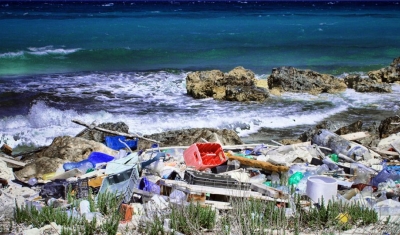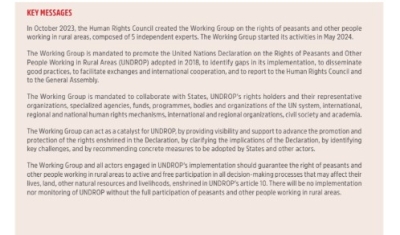27 March 2024
In fragile and conflict-affected states, environmental events can negatively impact peace and security. Such events can directly cause conflict, multiply its effects, and/or exacerbate food, water and livelihood insecurity, triggering spillovers such as increased competition over natural resources, loss of livelihoods and displacement.
Our new Research Brief ‘Navigating the Nexus: Climate Insecurity, Environmental Rights Violations and Conflict in Fragile Settings’ discusses the varied ways that climate change, violations of environmental human rights and conflict can coalesce and work in a mutually reinforcing manner.
Authored by Dr Erica Harper, our Head of Research and Policy Studies, it sets out different scenarios including where countries enter into armed conflict to gain control over natural resources, and where armed conflict results in the targeting or incidental destruction of environmental assets. What the paper shows is that the highest volume of conflicts over environmental resources take place at the sub-state level. Such conflicts can be driven by competition over resources, equitable access to resources and even the operation of non-state armed groups, which increasingly exploit situations of environmental insecurity.
‘The paper highlights that the relationships connecting climate insecurity, environmental rights violations and conflict are messy, dynamic and need to be understood through a ‘systems’ lens’ explains Dr Harper. She went on to note, ‘climate security needs to be understood as a localized problem of global concern. While the climate emergency may manifest in conflict spillovers with international dimensions, such as migration or cross-border resource encroachments, the vast majority of conflict stemming from environmental rights violations is taking place at the sub-state level. This should concern us all. Climate-induced sudden and slow onset emergencies, loss of livelihoods or hunger all operate to weaken resilience, heightening states’ vulnerability to intra and interstate conflict. The effective prevention of climate-driven conflict should thus be seen as rooted in the protection of environmental human rights locally, starting with mitigation and adaptation support’.
The findings will be discussed during an expert’s panel organized by the Geneva Academy later in 2024, which will also showcase related research including the role of the United Nations Human Rights Council as a prevention actor and the nexus between climate insecurity, migration and violent extremism.







